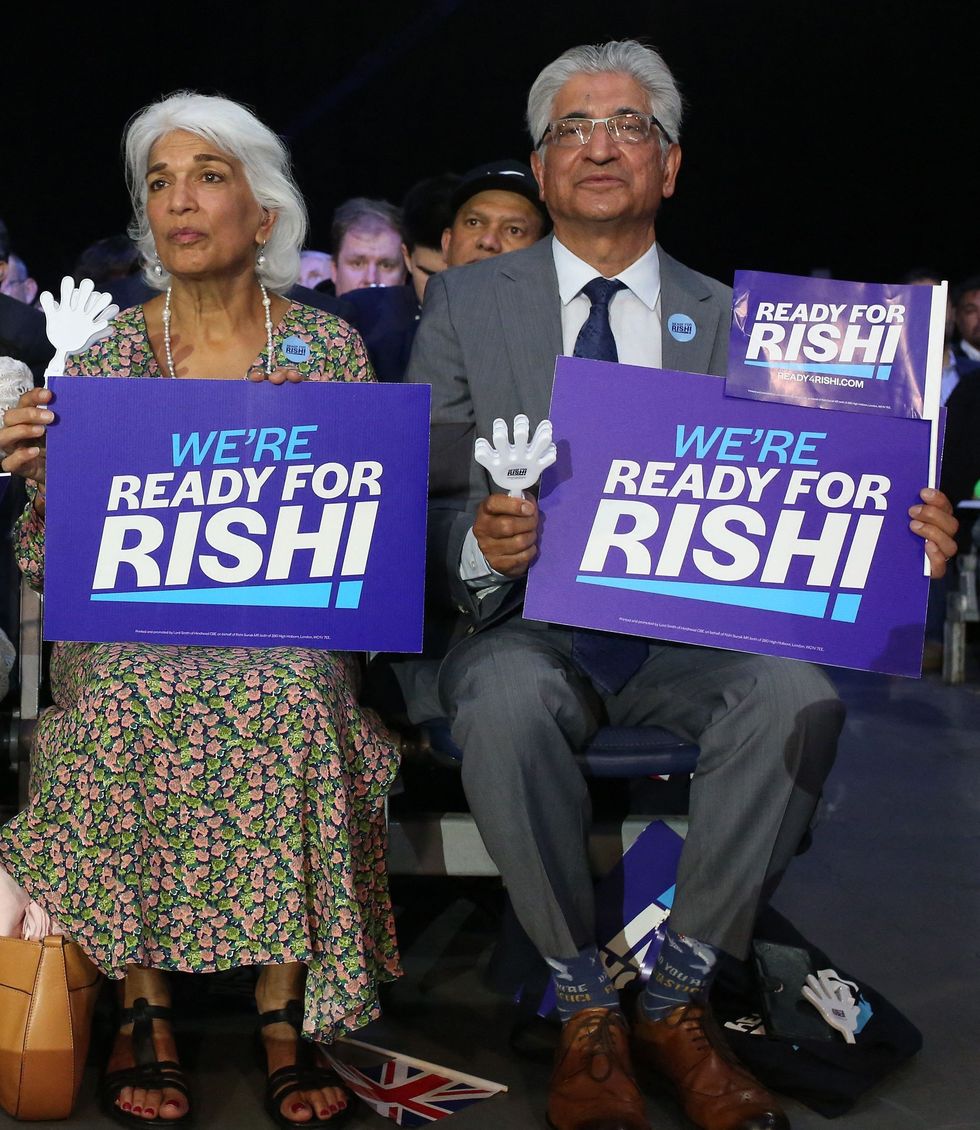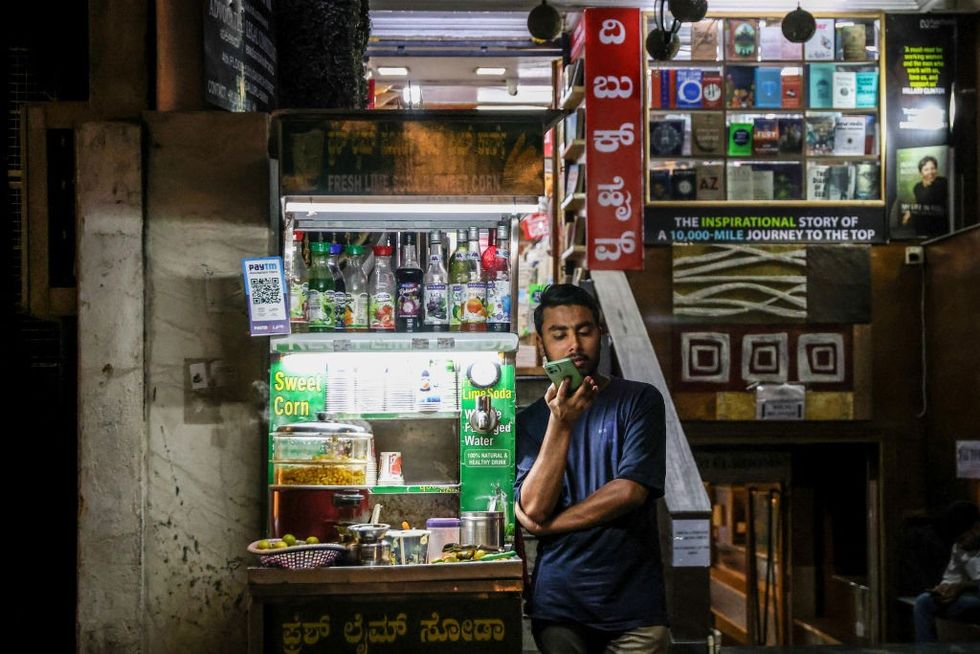Indian prime minister Narendra Modi’s shock ban on high-value banknotes will hit the war chests of his rivals before a key state election next year, sparking accusations that his strike against “black cash” will unfairly boost his party’s chances.
That is despite widespread anger among millions of Indians forced to queue outside banks to change small amounts of old money for legal tender, possibly denting support for the ruling Bharatiya Janata Party (BJP) at least in the short term.
Opposition politicians are scrambling to redraft campaign plans ahead of the ballot expected early next year in Uttar Pradesh, a state of more than 200 million people which will be crucial to Modi’s long term plan for re-election in 2019.
The prime minister last week outlawed Rs 500 and Rs 1,000 notes in a drive to rein in corruption and a shadow economy that accounts for a fifth of India’s $2.1 trillion (£1.7tr) gross domestic product.
With no state election funding, illicit cash is the lifeblood for political parties that collect money from candidates and businessmen, and then spend it to stage rallies, hire helicopters and hand out “gifts” to win votes.
Spending on the Uttar Pradesh election is forecast to hit a record Rs 40 billion rupees (£473 million), despite the cancellation of big notes.
Modi’s demonetisation drive has so far proven popular among increasingly aspirational voters who are tired of corruption, although views among the broader population and economists are divided over the efficacy and fairness of the move.
Opposition politicians have united to decry it.
“We will have to plan the entire election strategy all over again,” said Pradeep Mathur, a senior Uttar Pradesh leader of the Congress opposition party that was trounced by the BJP in 2014 national elections.
His concerns reflect a view that the BJP, with more members than its rivals and close ties to big corporate donors, can survive the cash crunch better, helping Modi win Uttar Pradesh and four other territories heading to the polls early in 2017.
For Modi, winning India’s main battleground state is vital to strengthen his party’s position in the upper house of parliament, where it is still in the minority, before seeking a second term in the 2019 general election.
“Their calculation is that this is going to hurt everybody, but in relative terms the BJP is going to come out stronger,” said Milan Vaishnav, a South Asia expert at the Carnegie Endowment for International Peace in Washington.
According to the Delhi-based Centre for Media Studies (CMS), which tracks campaign financing, the BJP relies on cash for less than two-thirds of its funding in a state like Uttar Pradesh.
Its regional rivals use cash to cover 80 to 95 per cent of campaign spending.
Demonetisation will force Congress to hold smaller rallies, said Mathur, and there will be fewer “freebies” for voters.
Other parties are also adjusting plans in Uttar Pradesh. Ashok Agarwal, a politician with the incumbent Samajwadi Party in the city of Mathura, will have to rely more on his team of 1,000 volunteers to connect with voters.
In a bid to limit the squeeze, parties are paying workers to queue at banks and swap old notes for new ones and evade scrutiny from tax inspectors, said party activists in Mathura.
Event managers, whose businesses usually boom at election time, are worried.
“No political party except the BJP wants to organise big rallies before January. All of them depend on cash,” said Rajesh Pratap, who has provided loudspeakers, outdoor air conditioners and security to party rallies for over a decade.
Mayawati, a powerful former leader of Uttar Pradesh who Modi’s aides view as his biggest electoral threat in the state, says the demonetisation timing appeared highly political.
BJP officials accuse Mayawati of hoarding “black” money garnered from selling tickets to candidates to fund her campaign.
One senior official and a close aide to Mayawati said some of her party’s rallies would be axed and replaced by more door-to-door campaigning.
“Last month ... we had to bring over 300,000 villagers from across UP (Uttar Pradesh) to Lucknow city for a day ... It’s not just us, but every political party spends money at grassroots level to win votes,” the official said.
Modi has not explicitly linked demonetisation to a clean-up of electoral funding, but officials in his party say rivals should have heeded his warnings earlier this year that he was serious about clamping down on “black” cash.
“You cannot call it a bolt from the blue because Modi ... had dropped sufficient hints that he will take strict action,” said a close aide.
While an immediate liquidity crunch for parties is clear, the longer-term impact on funding is less so.
The symbiosis between businessmen seeking favours and parties needing cash has sent campaign funding soaring.
In southern Andhra Pradesh state, three in four voters reported receiving money from parties during the last general election, according to research by CMS.
The group’s chairman N Bhaskara Rao describes electoral corruption as “the mother of all corruption” in India.
In the 2014 election, when Modi swept to power with an electrifying campaign that included 3D holograms of him giving speeches in villages across India, parties spent a record Rs 370bn (£4.3bn), CMS estimated.
They have also long circumvented rules and learned to avoid using cash – parties get donors to acquire equipment for rallies directly, or local traders to buy gifts for would-be voters, such as mobile phone credits.





 Sudha Murty and her husband Narayana Murthy with their daughter Akshata, son Rohan and her sister Dr Sunanda Kulkarni
Sudha Murty and her husband Narayana Murthy with their daughter Akshata, son Rohan and her sister Dr Sunanda Kulkarni Rishi Sunak’s parents Usha and Yashvir Sunak
Rishi Sunak’s parents Usha and Yashvir Sunak











 A street vendor looks at his smartphone on April 27, 2024 in Bengaluru, India. (Photo by Valeria Mongelli/Getty Images)
A street vendor looks at his smartphone on April 27, 2024 in Bengaluru, India. (Photo by Valeria Mongelli/Getty Images)

